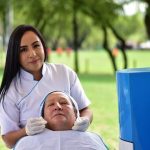Master of Science in Nursing (MSN) programs are becoming increasingly popular among nurses looking to enhance their careers. These graduate-level degrees open doors to advanced practice roles, leadership positions, and higher earning potential. If you’re a nurse considering a leap forward in your professional journey, understanding the nuances of an MSN program is crucial.
Table of Contents
What Are the Benefits of an MSN Degree?
One of the most compelling arguments for pursuing an MSN degree is the vast array of career opportunities it creates. With an MSN, nurses can move beyond bedside care to roles in management, education, and specialized clinical practice. Nurses with an MSN often see a notable increase in salary, reflecting the advanced skills and leadership capabilities they bring to the workplace.
Additionally, an MSN degree can be a stepping-stone to becoming a nurse practitioner or a clinical nurse leader, positions that offer more autonomy and a broader scope of practice. As the healthcare landscape evolves, MSN-prepared nurses are well-equipped to take on complex challenges and drive improvements in patient care.
Nurses with an MSN also have a competitive edge in the job market. Their advanced education is increasingly in demand as the healthcare industry recognizes the need for highly skilled professionals to lead teams and manage patient care in a variety of settings, from hospitals to outpatient clinics.

How Do You Earn an MSN Degree?
Earning an MSN degree typically involves completing a rigorous curriculum that includes both didactic coursework and clinical training. Most programs require applicants to have a Bachelor of Science in Nursing (BSN) and some level of professional experience. Some MSN programs, known as Direct Entry or second degree, also accept individuals with bachelor’s degrees in non-nursing fields, provided they complete certain prerequisites.
Once enrolled, students will study a range of subjects tailored to their chosen specialization, along with core courses in advanced nursing practice. The journey to an MSN can take around two years of full-time study, but many programs offer part-time options to accommodate working professionals.
Many MSN programs blend online coursework with in-person clinical hours, allowing students to maintain employment while advancing their education. This flexibility is crucial for nurses who need to balance work, study, and personal commitments.
What Types of MSN Degrees Are Available?
MSN programs offer various specializations to cater to the diverse interests and career goals of nursing professionals. Some of the common specializations include:
- Family Nurse Practitioner (FNP)
- Adult-Gerontology Nurse Practitioner (AGNP)
- Nurse Educator
- Clinical Nurse Leader (CNL)
- Nurse Administrator
Each specialization prepares nurses for different roles within the healthcare system. For instance, FNPs provide comprehensive care across the lifespan, while CNLs focus on improving patient outcomes by overseeing and coordinating patient care in various settings.
Choosing a specialization will often depend on the nurse’s interests, career aspirations, and the specific healthcare needs of the community they serve.
What Is the Curriculum for an MSN Program?
The curriculum of an MSN program is designed to build upon the foundational knowledge gained during undergraduate nursing education. It includes advanced courses in pathophysiology, pharmacology, and health assessment, as well as specialized training in areas such as health policy, leadership, and evidence-based practice.
Coursework is often complemented by clinical rotations, which provide hands-on experience in the nurse’s chosen specialty. These clinical hours are crucial for developing the advanced skills needed to practice at a higher level.
Research is another important component of most MSN programs. Students may be required to complete a thesis or capstone project that demonstrates their ability to apply scholarly research to real-world nursing challenges.
What Career Opportunities Are Available With an MSN Degree?
An MSN degree can significantly expand a nurse’s career opportunities. Graduates are qualified for roles such as:
- Nurse Practitioner (NP)
- Clinical Nurse Specialist (CNS)
- Nurse Educator
- Nurse Administrator
- Nurse Midwife
- Nurse Anesthetist
These roles come with increased responsibility, autonomy, and often, a higher salary. Nurse practitioners, for example, can operate independently in many states, diagnosing and managing patient care without physician supervision.
Nurse educators play a vital role in shaping the future of nursing by teaching and mentoring the next generation of nurses. Meanwhile, nurse administrators often work behind the scenes, ensuring healthcare facilities run smoothly and efficiently.
Is an MSN Degree Worth the Investment?
The decision to pursue an MSN degree should consider the time, effort, and financial cost involved. However, many nurses find that the investment pays off in terms of increased job satisfaction, opportunities for advancement, and potential salary increases.
As the demand for highly educated nurses continues to grow, the value of an MSN degree is evident. It not only equips nurses with the skills needed to provide high-quality care but also opens doors to leadership and specialized roles that can have a significant impact on healthcare outcomes.
Given the evolving complexity of patient care, the MSN degree is increasingly recognized as an important credential for those looking to lead and innovate in the nursing profession.
Frequently Asked Questions About MSN Programs
What Is the Purpose of the MSN Program?
The primary purpose of an MSN program is to prepare registered nurses for advanced practice roles in the healthcare system. It aims to enhance nursing skills, deepen clinical knowledge, and foster leadership abilities that can transform patient care.
MSN programs are also designed to address the growing complexity of healthcare delivery, equipping nurses to meet the challenges of an evolving industry and to improve health outcomes for diverse patient populations.
Is MSN Higher Than RN?
Yes, an MSN is a higher level of academic achievement than being a registered nurse (RN). While RNs are essential to patient care, MSN-prepared nurses have advanced education that qualifies them for more specialized and leadership roles, potentially leading to enhanced career prospects and higher salaries.
An RN to MSN program offers a pathway for registered nurses to elevate their qualifications without first completing a BSN, making it a practical option for career advancement.
What Is a Nurse With an MSN Called?
A nurse with an MSN degree can be referred to by various titles, depending on their chosen specialization and role. Some titles include Nurse Practitioner (NP), Clinical Nurse Specialist (CNS), Nurse Educator, or Nurse Administrator.
Each title reflects the advanced scope of practice and expertise that an MSN-prepared nurse brings to their work environment.
Are MSN Degrees Worth it?
For many nurses, an MSN degree is absolutely worth it. The degree offers a pathway to career advancement, higher earning potential, and the ability to make a more significant impact on patient care and the healthcare system as a whole.
It also provides professional satisfaction for those seeking to specialize in a particular area of nursing or move into roles that influence healthcare policy, education, and administration.
For a deeper look into what an MSN program entails, check out this insightful video:





